Exploring Prophetic Themes in Game of Thrones
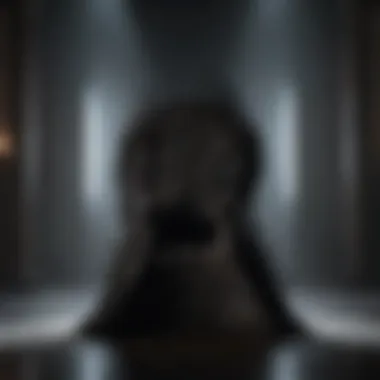
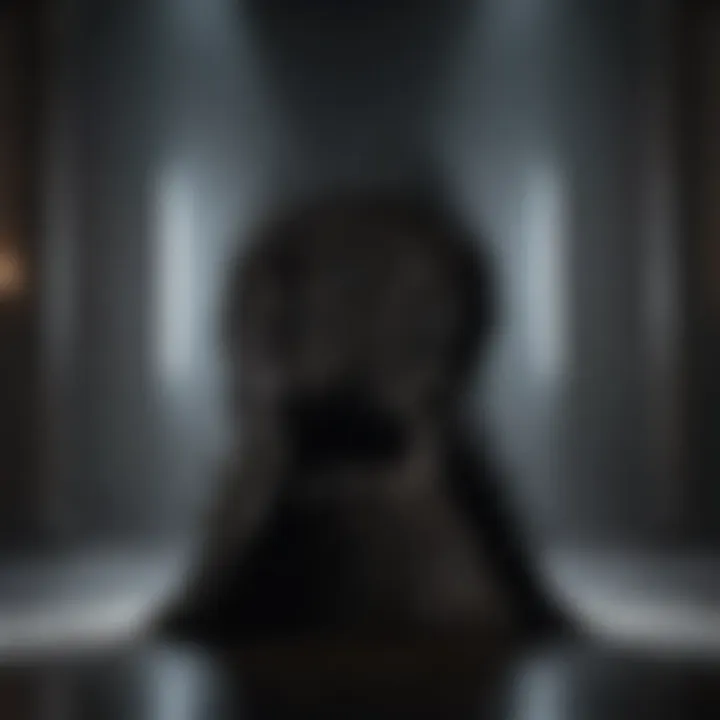
Intro
The concept of prophetic prophecy in Game of Thrones offers a complex lens through which to analyze character motivations and plot dynamics. This examination values not just the predictions made across the series, but how these prophecies shape the destinies of key players in Westeros. For fans and scholars alike, understanding these prophecies reveals the intricate narrative architecture that makes Game of Thrones a compelling story.
Prophetic moments act as significant turning points in the plot. They echo themes of fate and free will, challenging characters and audiences to grapple with destiny versus choice. This article will explore pivotal moments of foresight that resonate throughout the narrative, dissect their implications, and uncover how they mold character arcs. The ultimate goal is to enhance comprehension of the series’ narrative complexity and philosophical underpinnings.
Character Dissections
Detailed Analysis of Key Characters in Game of Thrones
Game of Thrones features an ensemble cast, each of whom engages with prophecy differently. Characters like Daenerys Targaryen and Bran Stark experience crucial prophetic visions that inform their actions and decisions.
- Daenerys Targaryen: From the outset, Daenerys is presented with prophecies that suggest her destiny is intertwined with fire and rebirth. The phrase "the dragon has three heads" serves as a symbolic representation of her journey.
- Bran Stark: Following his transformation into the Three-Eyed Raven, Bran offers viewers a deeper understanding of time and prophecy. His visions often suggest that the past and future are intricately linked, complicating the idea of choice and destiny.
Character Development Throughout the Series
The development of these characters directly correlates to the prophecies they encounter. Daenerys’ evolution from a pawn in others’ games to a formidable leader reflects how she interprets her prophetic messages. Bran's journey is equally profound, as he moves from innocence to a pivotal role in determining the world's fate.
- Daenerys's choices become increasingly nuanced as prophecies weigh upon her decisions, shaping her moral compass.
- Bran’s realization of his role complicates how he interacts with time and reality, highlighting the psychological burden of foresight.
Impact on the Overarching Storyline
Understanding prophetic elements enhances the viewing experience. Knowing what characters know often turns tension into anticipation. The intertwining of prophecy and individual character arcs frames the unfolding narrative, leading to heightened stakes and emotional depth.
"Prophecy can be a double-edged sword; it can guide, but it can also mislead."
Episode Breakdowns
Recap of Significant Events in Each Episode
The integration of prophecy in key episodes provides crucial context for character development. For instance, in Season 6, the episode "The Door" reveals Bran's prophetic abilities and the significant costs of his visions.
Exploration of Themes and Symbolism
Themes of fate play a critical role in shaping the narrative. Prophetic symbolism appears throughout the series. Fire and ice, dragons, and the cryptic words of Melisandre contribute to a broader understanding of how these themes connect across episodes.
Key Moments and Their Implications
Certain moments, like Daenerys's visions in the House of the Undying or Bran’s encounter with the Night King, carry profound implications. They serve not only to set the stage for character decisions but also to create an atmosphere of inevitability where the viewer constantly questions the nature of fate.
Lore Explorations
Delving into the Rich History and Lore of Westeros
Westeros is steeped in lore that amplifies the significance of props. Historical events and past characters’ decisions resonate in the prophecies foretold.
Uncovering Hidden Details and Connections
By analyzing characters' lineage and historical events, one can uncover deeper meanings in prophecies that sometimes evade casual viewers. For example, the history of House Targaryen is rich with prophetic references, influencing their rise and fall.
Exploring the Cultural and Mythical Aspects of the World
The mythos surrounding prophecies in Game of Thrones implies a cultural significance in the larger narrative. The way characters react to prophecies reflects societal beliefs about fate, free will, and destiny in a world rife with conflict.
Fan Theories
Compilation of Popular and Intriguing Fan Theories
Fan theories regarding prophetic prophecy bring an engaging layer to discussions about the series. Speculations often suggest alternative outcomes or highlight overlooked details.
Evaluation of Theories Based on Evidence from the Show
Evaluating these theories through the lens of the series not only enriches understanding but often reveals how insights on prophetic moments are woven within character decisions.
Speculation on Future Plot Developments
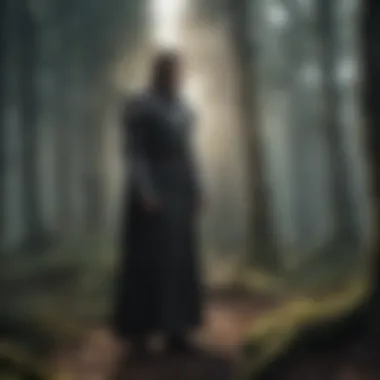

Engagement with fan theories fosters discussion about possible narrative outcomes and resolutions. It challenges viewers to consider how prophecies might manifest in the final episodes, impacting character destinies in unforeseen ways.
The Concept of Prophecy in Literature
Prophecy plays a significant role in the realm of literature, serving as a lens through which authors explore themes of fate, free will, and the intricate relationship between individual actions and broader narrative arcs. In many literary works, including Game of Thrones, prophecy often acts as a driving force that shapes character decisions and plot developments. By examining how prophecies are woven into the narratives, readers gain insight into the philosophical and existential dilemmas characters face. This is especially true within the context of the Game of Thrones series, where prophetic elements establish not just a trajectory for the characters, but also create tension and anticipation for the audience.
Definition and Characteristics of Prophecy
Prophecy in literature typically encompasses a declaration or prediction about future events, often delivered through supernatural means. These prophetic utterances can possess several characteristics:
- Ambiguity: Many prophecies are cloaked in vague language, leaving their interpretations open-ended. This ambiguity allows for multiple readings and outcomes, enhancing the narrative’s complexity.
- Inevitability: Prophecies often give the impression that certain events are destined to happen. This sense of inevitability can create a looming tension.
- Relevance to Characters: Prophecies often directly influence the motivations and actions of key characters within a story. Characters may struggle against their foretold fate or strive to fulfill it, leading to dramatic conflicts.
- Cultural Context: The cultural background of a story influences how prophecy is perceived and utilized. In Game of Thrones, the diverse cultures of Westeros bring different interpretations of prophecies to the forefront.
Historical Context of Prophecy in Fiction
Prophecy has roots in ancient literature, often depicting the relationship between the divine and the mortal. Homer's epics, Greek tragedies, and religious texts frequently feature prophetic figures who warn characters of their impending doom or glories. In much modern fiction, prophecy retains its mystical allure while also being reinterpreted to fit contemporary themes.
In fantasy literature, prophecy often transcends the mere prediction of events. It frequently acts as a narrative device to explore deeper themes of destiny versus choice. In Game of Thrones, this historical context underlines the narrative, as prophecies carry weight due to the socio-political conflicts and character struggles exemplified by figures like Bran Stark and Melisandre. The series adeptly bridges the traditional elements of prophecy with a modern audience's expectations, thus making it a fertile ground for analysis.
Prophecy in Game of Thrones
The concept of prophecy within the context of Game of Thrones is multifaceted and enriches the narrative in many ways. Prophecy serves as a vehicle for foreshadowing events, guiding character decisions, and creating tension in the plot. In a series marked by political intrigue and violence, prophetic elements add a layer of complexity, stirring speculation and highlighting themes of fate and free will. The ambiguity of these prophecies often leads to misinterpretations, which not only deepen the lore but also engage viewers and readers, making them an essential part of the storytelling.
Origin of Prophetic Elements
The origins of prophetic elements in Game of Thrones can be traced back to various literary sources and cultural influences. George R.R. Martin incorporated aspects of folklore and mythological traditions, where prophecies serve a crucial role in guiding heroes and determining their fates. The melding of fantasy with historical references creates a tapestry where prophecies feel both ancient and relevant. These origins establish a foundation that allows for diverse interpretations of the prophecies throughout the series.
Key Prophecies and Their Sources
Azor Ahai
Azor Ahai is one of the most captivating prophecies in Game of Thrones. It speaks of a hero who is destined to save the world from darkness. The prophecy outlines a threefold awakening of this hero, marked by trials of fire and sacrifice. The key characteristic of Azor Ahai is the emphasis on rebirth through pain, central to many character arcs in the series. This makes the prophecy significant as it connects deeply with themes of suffering and redemption.
The unique feature of Azor Ahai lies in its open-ended nature. Several characters are hinted to fit the criteria, from Daenerys Targaryen to Jon Snow. This ambiguity allows for rich character development but can also lead to disappointment for audiences expecting a clear resolution.
The Valonqar
The Valonqar prophecy predicts that a younger brother will play a role in Cersei Lannister's downfall. This prophetic element captures the essence of betrayal that is pervasive in Game of Thrones. The key characteristic of this prophecy is its intimate connection to family dynamics, showcasing the potential for conflict within close relationships. It operates on the notion that those closest to us can bring about our undoing, a compelling theme in a show full of treachery.
The Valonqar's unique feature is its specificity, suggesting a clear path of vengeance. However, this also sets high expectations for viewers about how it will unfold, which can lead to mixed responses based on how closely it aligns with the eventual plot twist.
Daenerys's Dragons
Daenerys's dragons are not just mythical beasts; they serve as prophetic symbols intertwined with her destiny. The prophecy regarding her dragons emphasizes themes of rebirth and power, as they are seen as agents of change in the world of Westeros. The key characteristic of the dragons is that they signify Daenerys's potential to reshape the political landscape. Their presence heightens her status and embodies her claim to the Iron Throne.
Their unique feature lies in the symbolic weight they carry. They are embodiments of fire, fear, and freedom. However, their destructive capabilities also pose questions about control and responsibility, raising critical discussions among fans about Daenerys as a ruler.
"Prophecies tend to be little more than threads, waiting to be woven into the tapestry of fate by those willing to take them seriously."
In summary, the prophecies in Game of Thrones, while diverse and rich, come with a set of expectations and interpretations that can significantly influence the viewer's experience. Understanding these key prophecies enhances comprehension of the series’ intricate narrative structure.
Major Prophetic Figures
In the world of Game of Thrones, prophetic figures play a critical role in shaping the narrative and influencing main characters. These figures not only predict events but also act as catalysts for action and transformation within the story. Through their foresight, they add intrigue and depth, making the already complex plot even more engaging. Understanding these figures helps to unravel the intricate web of prophecies and highlights their significance in driving key developments.
Melisandre: The Red Woman
Melisandre is one of the most enigmatic and controversial prophetic figures in Game of Thrones. As a priestess of the Lord of Light, she possesses abilities that allow her to see potential futures through flames. Her visions guide her actions and those of the characters she influences, especially Stannis Baratheon. Melisandre’s interpretations of prophecy are often ambiguous, leading to both devastating decisions and moments of revelation.
Melisandre's prophecies focus heavily on the figure of Azor Ahai. She believes that Stannis is the reincarnation of this legendary hero destined to save the world from darkness. However, this belief showcases the subjective nature of prophecy in the series. Melisandre’s unwavering faith in her visions sometimes blinds her to the truth, ultimately showcasing the inherent danger of misinterpretation. Her character embodies the struggle between faith and reality, all while raising questions about the morality of her actions in pursuit of what she perceives to be the greater good.
"The Lord of Light has shown me great things…" —Melisandre
Bran Stark: The Three-Eyed Raven
Bran Stark's transformation into the Three-Eyed Raven marks a shift in the portrayal of prophetic figures. Unlike Melisandre, who acts on individual prophecies, Bran gains an understanding of time and events from a broader perspective. His abilities to see into the past and present allow him to accumulate knowledge that transcends individual moments. Bran’s visions serve not just as forewarnings but as comprehensive insights into the fabric of reality in Westeros.
Bran’s prophetic journey begins after he falls from Winterfell’s tower. He learns to harness his powers, though it comes at a great cost. His character arc highlights the themes of destiny and the burdens of knowledge. The pieces of lore he gathers shape the future of the realm, especially in his connection with other key players like Jon Snow and Daenerys Targaryen. Bran’s role also questions the ethical implications of using foresight for personal gain or for the collective good. He offers a counterbalance to Melisandre, showcasing a more objective and less emotionally driven approach to prophecy.
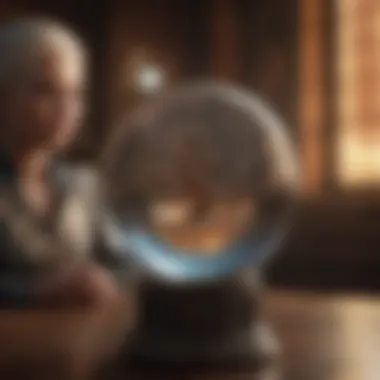
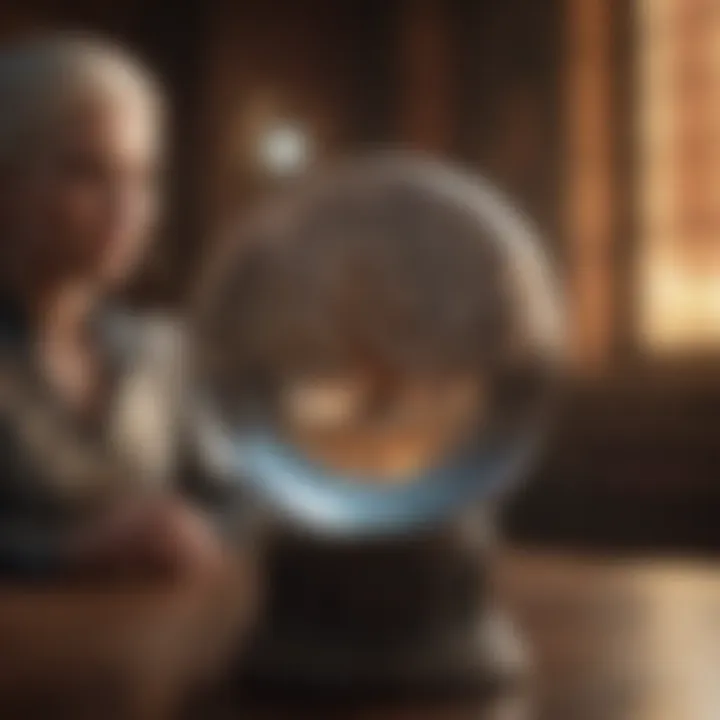
In summary, both Melisandre and Bran Stark illustrate the diverse interpretations and implications of prophecy within Game of Thrones. Their distinct approaches create a rich tapestry that deepens the narrative complexity and invites viewers to question the nature of fate, foresight, and the responsibilities that accompany such power.
Interpreting Prophecies
Understanding how prophecies are interpreted within the context of Game of Thrones is essential for appreciating the complexity of the narrative. The implications of prophetic statements resonate deeply throughout the series, offering insights into character motivations and plot structures. Viewing prophecies as more than mere foreshadowing reveals how these predictions guide characters in their choices, often leading them to their fates. The intricate nature of these interpretations underscores the tension between fate and free will, a recurring theme within the story.
Prophecies, in various forms, serve as a lens through which the audience can explore the motivations behind characters' actions. This understanding is pivotal because characters often act on their interpretations of prophecies, which can lead to unexpected outcomes. Thus, it is not simply the content of the prophecy that matters, but also how it is perceived and acted upon.
Ambiguity and Misinterpretation
Ambiguity is a crucial feature of prophetic language in Game of Thrones. Many prophecies are presented in vague terms, which allows for multiple interpretations. For instance, Melisandre's cryptic comments often lead characters like Stannis Baratheon down a path driven by misinterpretation. The words spoken to her can mean various things, depending on the character's motivations and desires. Prophecies often force characters to grapple with their fears and anxieties, leading them to assume meanings that align with their desires.
One notable example of ambiguity is Bran’s vision of the Three-Eyed Raven. This prophecy contains layered meanings that can mislead characters who seek a straightforward understanding. Connections between the past and future within his vision can lead to miscalculated strategies or misguided actions.
The consequences of misinterpretation can be severe, often leading to tragic results. Characters may find themselves caught in a cycle of pursuit fueled by their flawed understanding of what awaits them, which can ultimately contribute to their downfalls.
Impact on Character Decisions
Prophecies have a significant impact on character decision-making processes in Game of Thrones. The belief in a prophecy can shape strategies and alter alignments, sometimes with devastating effects. Characters often interpret prophetic guidance to reinforce their choices, which may not always align with the intended meaning.
For instance, Daenerys Targaryen's interpretation of her destiny as a ruler leads her through various moral dilemmas, significantly impacting her relationships and political choices. Her belief that she is destined to reclaim the Iron Throne drives her actions, affecting those around her, for both better and worse.
Similarly, Jaime Lannister's understanding of his role in fulfilling or defeating prophecies influences his decisions, especially regarding his relationship with Cersei. His choices illustrate the weight of prophetic beliefs and how they can both inspire heroism or lead one into a tragic path.
Ultimately, these interpretations fuel character arcs, showcasing how prophecies shape narratives in profound ways. As viewers, we see how the weight of interpretation adds layers of depth to the motivations and eventual outcomes for the characters involved.
Themes Connected to Prophetic Prophecy
Prophetic prophecy in Game of Thrones is not just an intriguing narrative device; it is a critical component that shapes the storyline and character decisions throughout the series. This section intends to illuminate the themes associated with prophetic prophecy, specifically focusing on the dichotomy of fate versus free will, and the interplay of power and responsibility. These themes enrich the narrative, prompting viewers to contemplate deeper philosophical questions about destiny, moral choices, and the effects of actions upon the world.
Fate vs Free Will
The tension between fate and free will is one of the most prominent themes surrounding prophetic prophecy in Game of Thrones. Characters often grapple with the notion that their destinies are predetermined by prophetic utterances versus their capacity to shape their futures through choices. For example, the prophecy of Azor Ahai foretells a hero arising from the ashes to fight the darkness. Characters like Daenerys Targaryen and Jon Snow are constantly confronted with expectations placed upon them by these prophecies, influencing their decisions—often leading them to question whether they are masters of their own fate or merely puppets manipulated by the whims of destiny.
"When the moment comes, you must be ready to lead, but will you heed the prophecy? Or will you forge your own path?"
Fate appears to guide several characters down paths that seem inevitable. However, their choices often reveal alternative outcomes, demonstrating that free will exists within the constraints of fate. This duality creates a rich narrative environment where the audience is left to ponder whether characters are fulfilling a prophesied role or actively crafting their destinies.
Power and Responsibility
Another critical theme connected with prophetic prophecy is the delicate relationship between power and responsibility. Prophecies often endow characters with great power, but this comes with the burden of responsibility to act upon—or resist—what has been foretold. Melisandre, for instance, wields the prophetic knowledge of the coming battle against the darkness but faces the ethical dilemma of sacrificing lives for the greater good. Her struggle raises questions about the morality of using power for achieving prophetic ends.
Conversely, Daenerys's journey is marked by her struggle to use her newfound authority wisely. The prophecy concerning her dragons and her potential as a ruler intensifies her sense of responsibility. She is often forced to evaluate her actions in light of the power she possesses and the expectations tied to her lineage. This theme illustrates how prophecies can serve as both a guiding light and a burden, impacting characters' moral and ethical decisions.
In sum, the examination of fate versus free will, along with the intricate dynamics of power and responsibility, forms a central part of understanding prophetic prophecy in Game of Thrones. These themes highlight the complexity of character motivations and the broader implications of prophecy within the narrative, inviting the audience to reflect on the nature of control, choice, and consequence in a world governed by both destiny and decision-making.
The Role of Prophecy in Plot Development
The inclusion of prophecy in a narrative serves a distinct function, especially within the complex world of Game of Thrones. Prophecies provide a framework for understanding events and character motivations while also delivering tension and intrigue. They often act as a driving force that projects the storyline forward, compelling characters to make decisions that ultimately affect the world around them. This dual purpose makes prophecy not just a thematic tool, but a crucial element of plot development in the series.
Pivotal Story Arcs Driven by Prophecy
In Game of Thrones, several key story arcs are influenced heavily by prophetic elements. These arcs reveal how characters are often trapped by their destinies, even when they try to assert free will. One notable example is the prophecy surrounding Daenerys Targaryen. Her quest to reclaim the Iron Throne is fueled by the belief in her destiny as the "Mother of Dragons," which gives her both strength and vulnerabilities.
One more significant arc includes the prophecies linked to Jon Snow. The whispers about him possibly being Azor Ahai not only shape his personal journey but also build considerable suspense among fans. The mounting expectations tied to this prophetic linkage serve as a catalyst for significant events leading to the climax of the series.
Key points from pivotal story arcs include:
- Character Motivation: Prophecies often provide the motivation for characters, forcing them into action based on what they believe they are meant to achieve.
- Conflict Creation: The discrepancy between prophecy and character choices creates conflict, heightening drama and unpredictability.
- Twists and Revelations: Many story twists emerge from characters misinterpreting prophecies, leading to unexpected consequences and insights.
Prophecy as a Narrative Device
Prophecy functions as a valuable narrative device in the landscape of Game of Thrones. It engages audiences by weaving tension through the narrative, as viewers speculate how prophetic quotes will manifest in the unfolding events. This uncertainty keeps fans invested in the unfolding plotlines and character arcs.
Utilizing prophecy as a narrative device also allows for deeper exploration of themes. It raises questions surrounding human agency, destiny, and the moral implications of knowing the future. Importantly, the ambiguous nature of many prophecies means that their interpretations can vary widely among characters and viewers alike, offering a multi-layered complexity to the narrative.


Some benefits of using prophecy include:
- Foreshadowing: This device creates layers of anticipation for what is to come, prompting viewers to look for clues in past episodes.
- Character Depth: Characters are often developed further through their beliefs about prophecy, illustrating their fears, hopes, and flaws.
- Thematic Resonance: Themes like fate and consequence are emphasized through the lens of prophecy, making them more accessible and engaging for the audience.
Prophecies in Game of Thrones not only predict future events but also enrich character dynamics and enhance thematic depth, drawing viewers deeper into the narrative web crafted by George R.R. Martin.
In summary, the role of prophecy in plot development within Game of Thrones can hardly be overstated. It not only influences pivotal story arcs but also serves as a potent narrative device that shapes viewer expectations and heightens the complexities of characters and their journeys.
Comparative Analysis of Prophecies
The study of prophecy in Game of Thrones is not only limited to its narrative construct within the series; it requires an examination of how these prophetic elements contrast with similar themes in other fantasy series. This comparative analysis deepens our grasp of the narrative strategies employed by George R.R. Martin. An understanding of the various approaches to prophecy reveals differences in how fate, free will, and the implications of foresight are interpreted across different works. This section serves both to illuminate the unique aspects of Game of Thrones and to show how the themes resonate with broader literary traditions in fantasy.
Game of Thrones vs. Other Fantasy Series
Game of Thrones employs prophecy as a central mechanism that drives plot points and character motivations. Unlike many traditional fantasy narratives, where prophecies are often clear and straightforward, Martin’s work revels in ambiguity. For example, prophets such as Melisandre or Bran Stark deliver predictions that are subject to multiple interpretations. This characteristic distinguishes Game of Thrones from series like The Lord of the Rings, where prophecies and their meanings are presented in a more linear fashion.
In The Wheel of Time, another renowned fantasy series, prophecies influence characters but often with a more optimistic undertone compared to Martin’s darker narrative tones. The complexities in Game of Thrones demand more from its audience, requiring them to question the reliability of prophetic visions.
The importance of this distinction lies in the way audiences engage with and derive meaning from narratives. Game of Thrones encourages a critical exploration of character arcs and plot resolutions through prophetic elements, while other series might provide a clearer moral or thematic pathway.
Cultural Influences on Prophetic Themes
Prophecy within Game of Thrones is deeply influenced by cultural elements, both from the medieval settings and the historical myths that inspired them. Various cultures have their own styles of prophecy and how it impacts society, which can be seen in the series. From the concepts of fate in ancient Greek and Roman literature to the Norse sagas, each culture’s interpretation of foresight adds layers to understanding prophetic messages in fiction.
For instance, the Valonqar prophecy, which foretells of a younger sibling's role in Cersei Lannister's eventual demise, has its roots in cultural motifs that emphasize familial betrayals. This reflects a broader theme seen throughout many cultures, suggesting that fate is often entwined with personal relationships and the nature of power.
As we analyze how Game of Thrones contrasts with other fantasy works, we grasp that prophetic themes are not just literary devices but windows into deeper human concerns — concerns mirrored across cultures and throughout history. By studying these themes comparatively, we can appreciate the rich interplay between storytelling and cultural influences that shape our understanding of prophecy in Game of Thrones.
"Prophecies serve as means to explore human fears, ambitions, and moral questions, adding depth and complexity to narratives that challenge readers and viewers alike."
Thus, the comparative analysis of prophecies enhances our understanding of the narrative mechanisms in Game of Thrones and allows us to appreciate the diverse interpretations present in the wider fantasy genre.
Critique of Prophetic Narratives
The analysis of prophetic narratives in Game of Thrones reveals much about the structure and meaning of the story. It is crucial to evaluate how these prophecies have been constructed and resolved. This critique can lead to a broader understanding of both character motivations and overarching themes. Importantly, the quality of resolution in prophetic narratives can significantly influence audience satisfaction. This section explores the elements that contribute to or detract from this satisfaction, alongside viewers' expectations when engaging with the series.
Satisfaction of Prophetic Resolutions
The resolution of prophecies often serves as a focal point within the storyline. Viewers are invested in how prophesied events unfold or conclude. Satisfying resolutions to these prophecies can offer a sense of closure. Conversely, abrupt or unexpected outcomes may lead to disappointment among the audience.
Some notable aspects regarding the satisfaction of prophetic resolutions include:
- Clarity and Coherence: Resolutions should align with established lore and plot development within the series. Ambiguities can frustrate viewers if they feel essential elements are overlooked.
- Character Development: How prophecies influence character arcs can affect viewer satisfaction. If a resolution feels earned and reflects a character's growth, it is likely to resonate well with the audience.
- Narrative Consistency: The coherence of prophetic conclusions with previous plot points and character decisions matters greatly. Viewers prefer consistency over surprise twists that feel unfounded.
For instance, some significant prophecies fail to deliver expected outcomes, much to the chagrin of fans. As viewers analyze these resolutions, they might consider what could have enriched their anticipation and overall enjoyment.
Viewer Reception and Expectations
The reception of prophetic narratives varies among audiences. Different viewers hold distinct expectations about how prophecies will unfold. Factors such as prior knowledge of fantasy tropes and personal interpretations of the narrative shape these expectations.
Key points affecting viewer reception include:
- Anticipation of Themes: Expectation often revolves around common themes found in fantasy literature, such as fate, heroism, and redemption. Fans may anticipate that prophecies will serve to reinforce these themes.
- Community Discussions: Platforms like Reddit often serve as forums for dialogue about anticipated outcomes. Discussions can heighten expectations, influencing how viewers perceive resolutions when they arrive.
- Disappointment vs. Surprise: Audiences may feel a mix of satisfaction and disappointment based on how well prophetic resolutions meet their speculative narratives. A twist ending can surprise viewers but can also alienate fans who have invested time in forming their expected conclusions.
"The true test of prophetic narratives lies within their ability to resonate with the audience, creating a shared experience shaped by anticipation and reflection."
Understanding viewer reception provides insight into the narrative's effectiveness. Analyzing expectations in the context of prophecies highlights the delicate balance storytellers must achieve to fulfill their audience responsibly.
Finale
The significance of prophecy in Game of Thrones cannot be understated. It serves as a critical lens, shaping the decisions, conflicts, and ultimately the lives of several central characters. Prophecy encapsulates the themes of fate, free will, and the human condition, allowing viewers to ponder profound philosophical questions.
In this article, we explored various aspects of prophecy, including its origins and key figures such as Melisandre and Bran Stark. We analyzed how prophecies impacted crucial plot developments and examined the viewer's reception of these narratives. The blend of ambiguity and clarity in prophetic elements reflects a nuanced understanding of human motivations and choices, inviting both engagement and critique.
Ultimately, the exploration of prophetic prophecy enhances our comprehension of the complex narrative threads woven throughout the series. Understanding these elements allows Game of Thrones fans to appreciate the delicate interplay between fate and the choices characters make. Each prophetic statement not only keeps the audience intrigued but also adds layers of meaning to the unfolding drama, emphasizing that in a world where power dynamics shift rapidly, foretelling the future is a perilous yet compelling endeavor.
As we reflect on the importance of prophecy, it is clear that these narratives underscore the intricate nature of storytelling in Game of Thrones and the philosophical dilemmas faced by its characters.
"The past is already written. The ink is dry." – A reminder of the weight prophecies carry in shaping destinies.
This dual nature of prophecy sparks a continuous dialogue among fans, prompting discussions about the implications of foresight in a world rife with political intrigue and ambition. By learning from the prophetic elements, we gain insights not only into the fictional realm of Game of Thrones but also into our own lives and the choices we confront daily.



